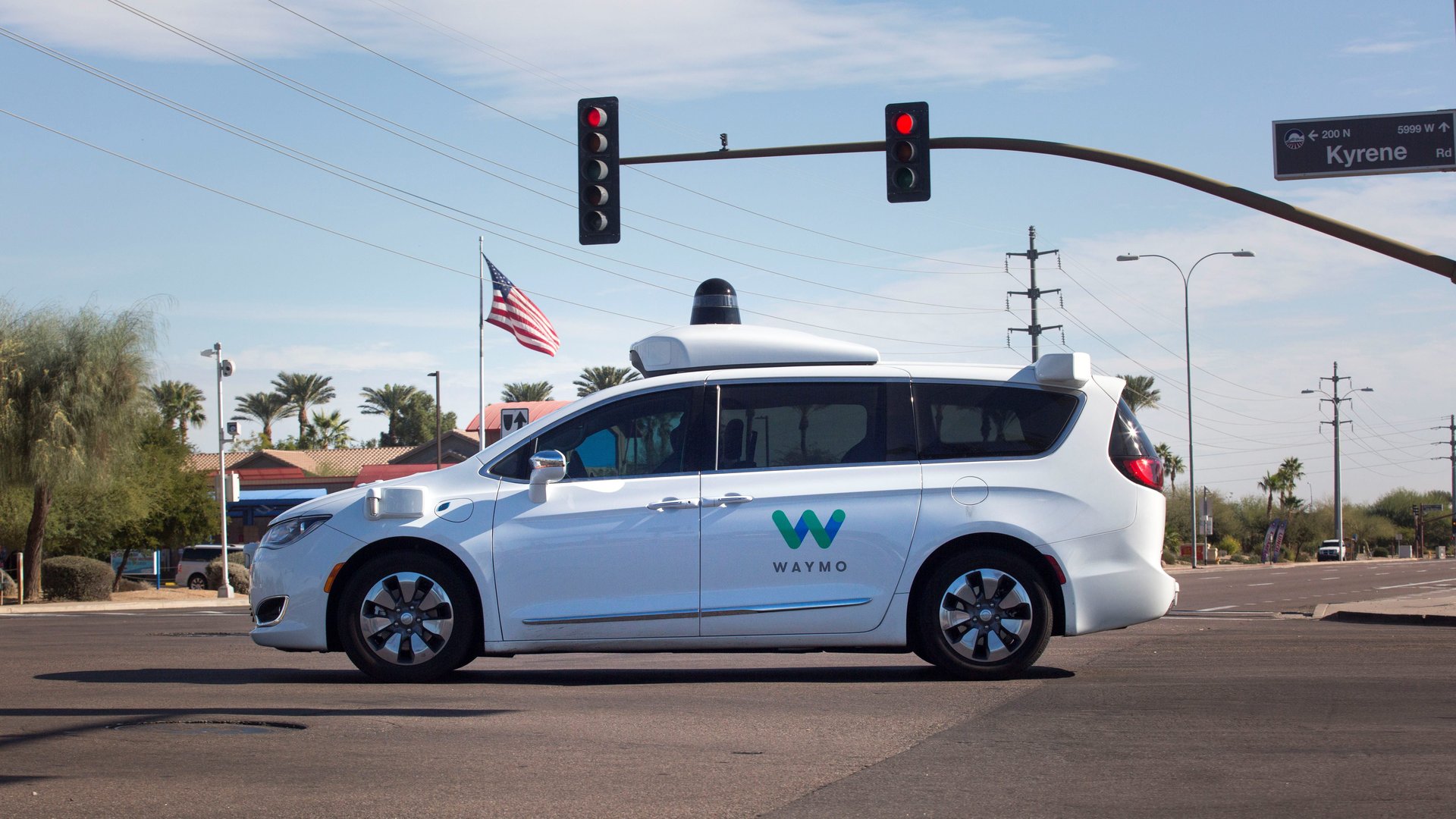Waymo is readying a ride-hailing service that could directly compete with Uber
Waymo is preparing to launch a ride-hailing service akin to Uber’s, but with driverless cars.


Waymo is preparing to launch a ride-hailing service akin to Uber’s, but with driverless cars.
The self-driving carmaker spun out of Google was approved on Jan. 24 to operate as a transportation network company (TNC) in Arizona, the state department of transportation told Quartz. Waymo applied for the permit on Jan. 12. Its application, which was reviewed by Quartz, contained images of the autonomous Chrysler Pacifica minivans the company is testing in five US states.
The application realizes a long-held fear of Uber’s: that Waymo intends not just to build driverless cars, but to operate its own ride-hailing business. Waymo has been testing a self-driving car service in the Phoenix area since last April that lets passengers hail cars through an app, similar to Uber. TNC status would allow it to charge for these rides, which are currently free. Uber co-founder and former CEO Travis Kalanick has long believed that to compete, Uber must develop self-driving cars, too.
“The minute it was clear that Google was getting into the ride-sharing space, we realized we needed to make sure there was an alternative, because if there is not, we will be out of business,” Kalanick told Bloomberg in a July 2016 interview, as Uber accelerated its own driverless technology efforts.

Arizona granted the TNC permit a week and a half before Waymo commenced its trade secrets trial against Uber in San Francisco, alleging Uber stole Waymo’s knowledge on how to build self-driving cars. The two companies reached a settlement on Feb. 9, five days into the trial, which includes Uber paying Waymo a 0.34% equity stake and agreeing not to incorporate Waymo’s confidential information into its software or hardware. But nothing prevents Waymo from competing in the ride-hailing arena.
Waymo confirmed to Quartz that the TNC permit moves it a step closer to the commercial, on-demand ride service it plans to launch in Phoenix this year. “As we continue to test drive our fleet of vehicles in greater Phoenix, we’re taking all the steps necessary to launch our commercial service this year,” a Waymo spokesman said in an emailed statement. The company said it hasn’t announced rates yet for those rides. Waymo plans to operate commercially in other cities in the future, but declined to provide specifics.
Alphabet chief financial officer Ruth Porat said on the company’s fourth-quarter earnings call on Feb. 1 that Waymo was excited about its progress in Phoenix, and working toward a public ride-hailing program. “Riders will be able to use a Waymo app to hail one of our fully driving, self-driving cars without a driver at the wheel,” she said.
Uber declined to comment.
Waymo sued Uber in February 2017, alleging that Uber stole trade secrets through its acquisition of Otto, a small, little-known driverless trucking company started by former Waymo employee Anthony Levandowski. Waymo alleged that Levandowski downloaded 14,000 confidential files, including trade secrets, shortly before he quit to start Otto, which he quickly sold to Uber.
Google was an early backer of Uber, investing $258 million in 2013 through its venture-capital arm. But the relationship between the two soured after Uber realized that Google wanted to get into the ride-hailing business itself. It worsened further when Uber hired several top Waymo engineers to build its own self-driving program in Pittsburgh, Pennsylvania.
“Larry made it very clear that he was very upset with us and not happy that we were doing autonomy,” Kalanick said during court testimony on Feb. 7, referring to Larry Page, chief executive of Google parent Alphabet. “Everything we would get in terms of a signal from other people who knew him or knew people around him was that generally Google was super not happy, unpumped, about us doing this.”
Driverless cars are widely believed to be the silver bullet that will make ride-hailing profitable by eliminating the main cost: wages paid to human drivers. In the fourth quarter of 2017, Uber paid about $8 billion to drivers in earnings and bonuses, or about 72% of its gross revenue for the quarter. Uber lost $4.5 billion last year on $37 billion in gross revenue.
Waymo’s vehicles in the Phoenix area have driven more than 4 million miles on public roads. In November, the company said a portion of its cars in the Phoenix area were operating in fully autonomous mode, what’s known in industry parlance as level four autonomy. “A fully self-driving fleet can offer new and improved forms of sharing,” Waymo said at the time, adding that in coming months it would invite members of the public to ride in the fully autonomous vehicles, beginning with those already in the early rider program.